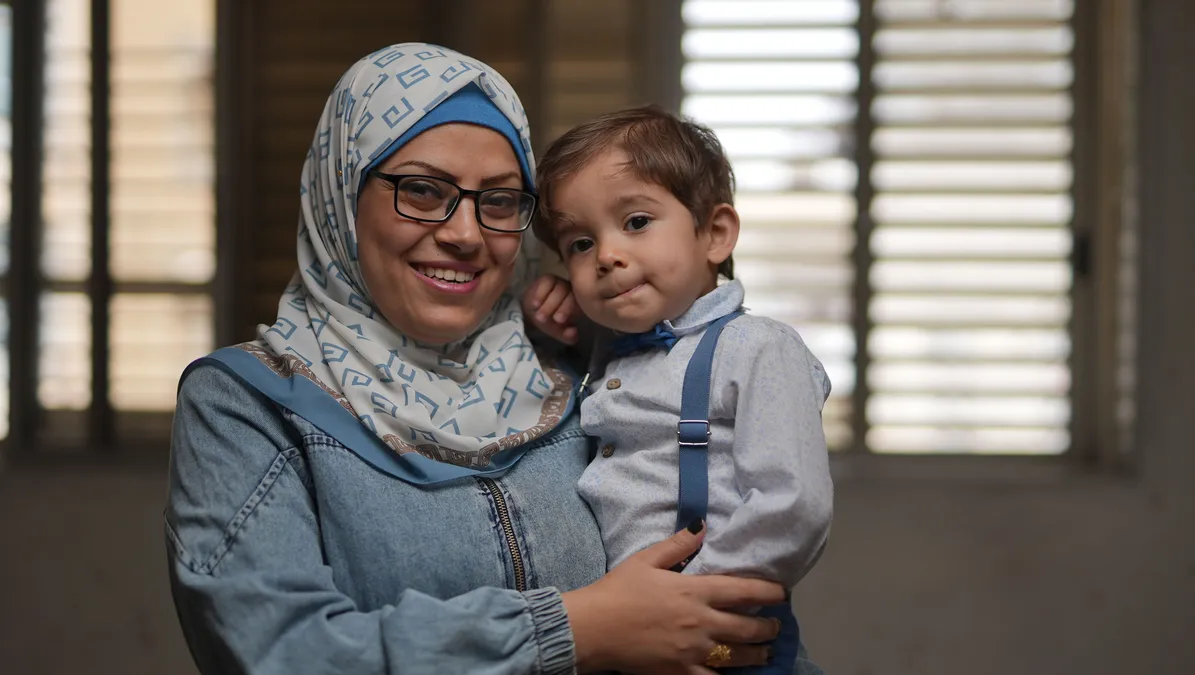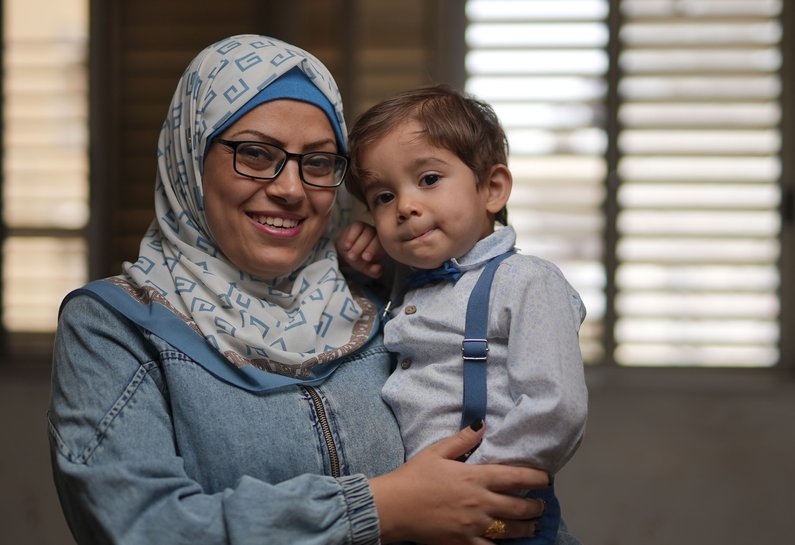Generation Palestine: “I fear that my baby is going to spend his childhood hiding from Israeli bombs”
7 September 2023


At 21 months old, Rabab’s baby Yahia was diagnosed with malnutrition and admitted to a clinic run by MAP’s partner, Ard El Insan (AEI). “Giving birth to Yahia was a spark of hope; that there is finally something I will look forward to and that will bring me joy. But seeing Yahia’s suffering breaks my heart,” Rabab told me.
Trapped under Israel’s suffocating, illegal 16-year closure and blockade, and with sky-high rates of poverty and unemployment, more than two thirds of Gaza’s population lack sufficient access to nutritious food. One in 10 children in Gaza are stunted, preventing them from developing to their full potential. These issues are compounded by limited access to quality healthcare services.
“Thankfully Yahia was discharged after his recovery. But his blood levels are very low, and I have been running from one hospital to another for a diagnosis. Preventable diseases and conditions become life-threatening due to the lack of proper medical care here in Gaza,” said Rabab.
“Both my husband and I do not currently have jobs and we live at my in-law’s house. As a mother, I am experiencing trauma beyond my endurance and I’m at a loss in dealing with the trauma of my child who should be playing, not suffering.”
Giving birth to Yahia was a spark of hope; that there is finally something I will look forward to and that will bring me joy. But seeing Yahia’s suffering breaks my heart.
Seventy five years ago, Rabab’s family were forcibly expelled from their homes in historic Palestine during the violence related to the creation of the state of Israel. This dispossession is referred to by Palestinians as the Nakba (‘catastrophe’). Rabab believes the Nakba is ongoing for her and her family in Gaza: “It is manifested in our economic impoverishment, the blockade, repeated [Israeli military] offensives, our poor health conditions, and our lack of medical equipment.”
“Part of our ongoing Nakba is that my baby Yahia had to experience the latest offensive in May. We were terrified all the time. He did not know what was happening, but he saw us running and hiding every time there was the sound of bombing. Although he is just a child, he has already learned to rush and hide behind a chair or under a table whenever he hears an explosion caused by an Israeli airstrike,” she told me.
“I fear that if things do not change, and change fast, he is going to spend most of his childhood hiding from Israeli bombs behind chairs and under tables. After the offensive ended, any loud sounds outside would remind him of that terror. No mother wishes this for her child.”
“I am giving my all to provide Yahia with the best chance of education. But my fear is that all of this may not secure him a safe and stable life, that he may be subjected to the same living conditions. I hope for an end to the occupation. I hope that my son will recover without having to need treatment abroad. But should he need to travel for treatment, I hope we will be able to do so.”
Children under five are at significant risk
So, what future do baby Yahia and other newborns in Gaza really have?
Currently, children are forced to face a future of poverty, insecurity, and limited hope. The water they drink is contaminated, and the food they can access often lacks the nutrition their growing bodies need. They frequently experience the terror and trauma of bombing and violence, and must pray that the Israeli authorities will one day grant them a permit to leave the open-air prison they were born into, to experience the opportunities afforded to the outside world.
As a result of these and other deprivations and stressors, UNICEF estimates that that more than 125,000 children under five years old in the occupied Palestinian territory – a significant proportion of these being in Gaza – are at risk of not reaching their full developmental potential.
Each child’s story risks being reduced to yet another statistic in Gaza’s protracted, and man-made humanitarian crisis. The Universal Declaration of Human Rights declares that everyone has the right to a standard of living adequate for their health, and that motherhood and childhood are entitled to special care and assistance.
The rights to health and dignity of children were reaffirmed in the 1991 Convention on the Rights of the Child. For these rights to be realised, the closure of Gaza – and the collective punishment of even its youngest residents – must be finally ended.
Until this day comes, MAP is continuing to do all it can to support Gaza’s children. AEI is the only clinic focused on child malnutrition in Khan Yunis, in southern Gaza, and the only clinic in Gaza treating children and adults with coeliac disease. With MAP’s support, AEI was able to screen 9,117 school-aged children in Khan Yunis Governorate last year. More than 22% of these children screened needed malnutrition follow-ups at the AEI centre.
With the love of their families and communities, the commitment and critical care provided by our partners, and the support of people around the world like you, children in Gaza – like Yahia – can have a chance of a brighter future.
Together we must stand with Palestinians young and old and ensure that the newest generation have the opportunity of a proper childhood and the brighter future they deserve. They cannot afford to wait any longer. Please take action today.
First name
*
Last name
*
Postcode
*
Email
*
To keep updated about this campaign and MAP's work supporting the health and dignity of Palestinians, please tick this box. (You can unsubscribe at any time)
Photo: Rabab and her baby Yahia in Gaza. (Credit Reflection Media / MAP).